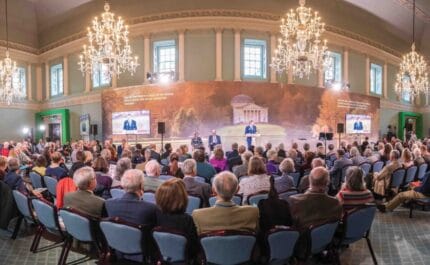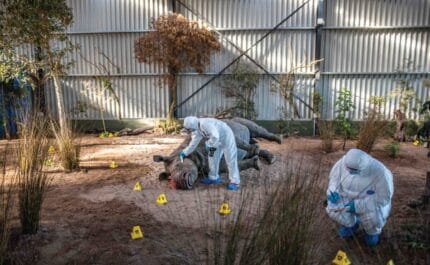“I curse the day I was born a Welshman”
Back in 2012, Delayed Gratification associate editor James Montague met John Jenkins, the former terrorist who targeted the Prince of Wales’ investiture. Here's how Jenkins remembers his time as a Welsh nationalist
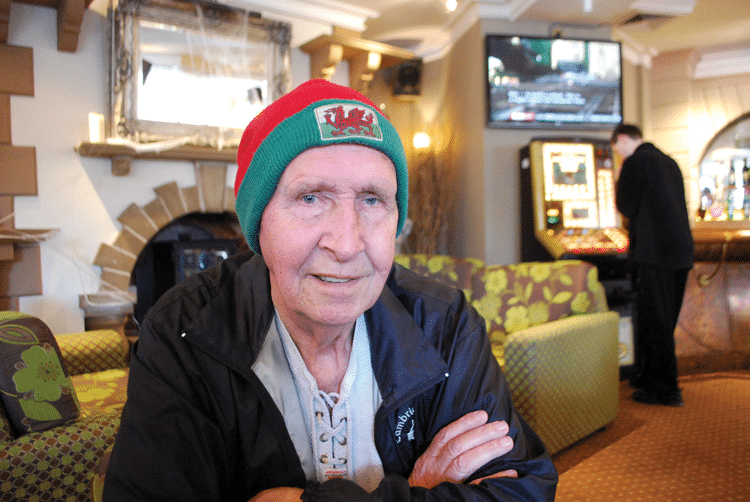
1st July 2012 (Taken from: #8)
HM Prison Wormwood Scrubs
May 1971
Annwyl Mrs White
Many thanks indeed for your most welcome and refreshing letter… I say, and, repeat, ‚Äúwelcome‚Äù and ‚Äúrefreshing‚Äù not for my sake alone, but for the sake of old Mother Wales, who will need to start worrying when letters like yours cease to be written‚Ķ
She is not a beautiful young girl after whom I lust, or an old Duchess whose money and status I desire; she is old, well past her best, decrepit and boozy and has taken strange bedfellows without the saving grace of desperation.
I “took up arms” because with many other people, I could feel instinctively that our national identity, our sacred soul, our everything, was not only being threatened but was in the last stages of survival. My aim was to create a state of mind, so that people would not accept all that the English government said and did as Moses on the Mount; to make them realise that all actions are acceptable when performed in the national interest.
My friends lost their lives, I and others have lost our freedom for a Wales, free and Cymraeg, and I will never settle for anything less. The fight is not only against inertia and apathy but against time itself, because Cymraeg can only be saved and cultural renaissance created by an Independent Welsh Government.
We must always remember that to be liked is fatal, because all we can hope for then is benign toleration. We must aim preferably at being hated, then at least we gain a healthy respect.
Force is to diplomacy what bullion is to banknotes. I have always believed that there is a direct connection between one’s social attitude towards a people, and its fighting record.
I hope you and your husband have not gained the impression that I am a bloodthirsty militarist. It is simply that the Government has placed us in the final position where we either become men or mice; there is no honourable position in between.
Er mwyn Cymru
The attractive facade of the Wynnstay Hotel in Wrexham has changed little since it was built in the late eighteenth century. Its red brickwork, sash windows and wrought-iron fixtures are all still in place, as is its large black balcony, from which two prime ministers – William Gladstone and David Lloyd George – both made speeches at one time.
Inside, however, the Wynnstay has seen better days. Any semblance of its past glory has been smothered in a sub-Ikea, proto-Wetherspoons makeover. Large, garish signs covered in exclamation marks stand at the entrance of the grand front doors, offering the early afternoon¬Ýdrinkers ‚Äú2 for 1 cocktails‚Äù and ‚Äú2 bottles for ¬£4‚Äù.
For a brief time in the late 1960s, John Barnard Jenkins was one of the most influential and efficient homegrown terrorists Great Britain has ever produced”
It is here that I find John Barnard Jenkins, sitting on his own at the back of the bar, wrapped up warm against the last days of autumn. He is 79 years old, but he springs up out of his chair with the grace of a much younger man, eyes still bright under his woollen Wales hat. He shakes my hand and passes over a bundle of pages. “This was an interview I gave a few years ago,” he says. “There might be something of interest there.”
The paper is yellow and stained, and from a magazine that has long ceased to exist. Not many people have come to speak to Jenkins in recent years. Even those familiar with nationalist politics would be hard pressed to feel any more than a flicker of recognition when hearing his name. Yet, for a brief time in the late 1960s, John Barnard Jenkins was one of the most influential and efficient homegrown terrorists Great Britain has ever produced. His cause wasn’t Irish republicanism or Marxist Leninism (although he would admit that socialism had its virtues). Instead Jenkins agitated for Welsh independence from British (read: English) occupation, masterminding a four-year-long bombing campaign as the head of MAC – Mudiad Amddiffyn Cymru, or the Movement for the Defence of Wales.
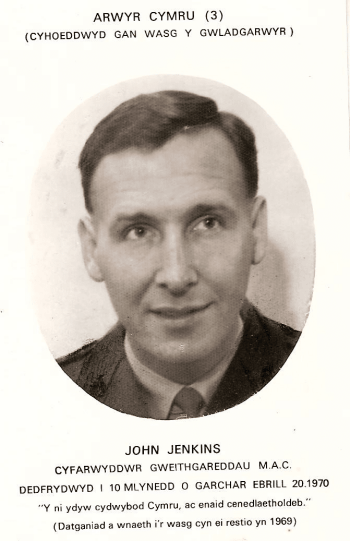
John Jenkins in 1970
His targets were the symbols of what he saw as the English domination of the Welsh people: tax offices, prominent businesses and the pipes carrying water from the dammed and flooded valleys of his nation to the taps of England. His bomb-making skills were so advanced, and his¬Ýorganisation so adept at avoiding detection, that Jenkins and MAC were able to operate largely unmolested by the police. And then, in 1969, the mother of all targets presented itself: Charles Philip Arthur George Windsor.
Prince Charles, a somewhat diffident 20 year old, was taking his first steps into public life and as heir apparent he was to be invested by the Queen as Prince of Wales. The event was to take place at Caernarfon Castle on 1st July 1969 and would have a global audience. Jenkins decided that this was the moment to send a message to the English and the rest of the world that the Welsh meant business. He hatched a plan to plant a series of bombs timed to go off during the investiture.
There was a twist in the tale: at the time Jenkins started to plan his attack, he was serving as a sergeant in the British army’s dental corps. By day he would see to the oral hygiene of the troops he believed had helped subjugate his people. By night he was operating a cell system of Welsh operatives so sophisticated – with a system of safe houses, dead-letter boxes, dumps, sympathisers, informers and activists – that, according to Jenkins, it inspired the IRA to change how they ran their operations in the 1970s. MAC had had four years of practice in outwitting the authorities and second-guessing Special Branch. The royal family, the most ambitious and dangerous target in Britain, was their next target.
Jenkins orders a coffee, looking around at a tipsy group braying in English accents near us. “Sometimes,” he says, dropping his voice so as not to appear rude, “I don’t recognise my country any more.”
Jenkins was born in 1933 and raised in Penybyrn near Merthyr Tydfil. He was an inquisitive child. “I read a lot, and one of things I read was that Christianity was brought to this country by Augustine in 597,” he says when I ask how he first formed his idea of Wales and Welshness. He was 15 years old. “He was sent over by the Pope. And I said, ‘Fair enough, right-oh’. But on my travels I came across a memorial on the site of an old chapel. The memorial stone said: ‘This is the chapel of Saint Gladys, 428.’ If this thing was built in 428, how was it that Christianity didn’t arrive until 200 years later? So there must have been Christianity earlier. But I couldn’t find anything in the books I had been given to read. It just wasn’t there… I started to think about the strange discrepancy between 428 and 597.”
It was this irregularity that helped him to develop a lifelong distrust of authority. Yet in his early twenties, he chose to join the British army. “No, I didn’t feel British at all,” he says, laughing. “But I did feel the need to get out and see the world and the only option open to me at that time was to join the army.” The army Jenkins experienced while stationed in Cyprus and Germany, before being posted to barracks in nearby Chester, was a petty, English-centric organisation which made him feel marginalised and occasionally mistreated. But it wasn’t the army that made Jenkins declare war on the British state. It was a controversial incident that still stirs passions in Wales today.
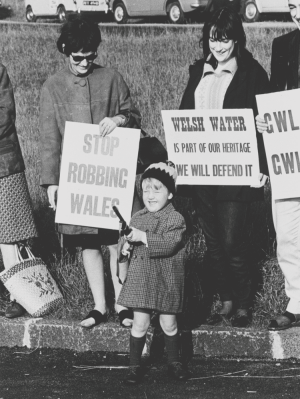
Anti-dam protests. Photo: Archive of the National Library of Wales, Geoff Charles collection
In 1956 a Liverpool City Council-sponsored private bill was brought before the British parliament to create a water reservoir in the Tryweryn Valley in Wales, to service Liverpool’s industrial needs. The valley was home to Capel Celyn, a small Welsh-speaking village, and the protests against the reservoir were fierce. But they were to no avail: nine years later, the valley was dammed and flooded, the residents displaced, their homes destroyed. “The people [in the village] read about it in the paper. The village had to go,” Jenkins explains. “So in the end [the authorities] just told them, ‘Get out.’ Every MP in Wales bar one voted against it. But it didn’t count a damn because the other 600-odd [MPs in Britain] voted for it. It was born in on many people, including me, that there was no mechanism in Wales to protect us. That struck people as very hard and something that wanted righting. And that started a lot of people off. Including me.”
The fate of Capel Celyn radicalised the Welsh political scene. Support for the Welsh nationalist party Plaid Cymru rocketed. Jenkins felt that their posturing – and the amateurish direct actions of a group called the Free Welsh Army – would get the Welsh nowhere. But a far more secretive organisation had also been formed: Mudiad Amddiffyn Cymru. Out of the blue, Jenkins received a phone call from them. “The people who did the recruiting were from my area in South Wales. I don’t know how they found out which way the wind was blowing, but they did.” Jenkins was invited to a meeting in a pub. Two men he didn’t know were waiting for him, and they quizzed him for a whole day on his views, his integrity, and his abilities.
“The role they had in mind was to refrain from any open demonstrations. Don’t attend any marches. Nothing. So that I wasn’t photographed by the Special Branch,” he said, before explaining why he felt compelled to join the organisation’s military wing. “I saw that when you are in power you can move the goalposts to wherever you bloody well wish. And against people like this you can never win. We tried it constitutionally and we lost out. So it dawned on me then that if we were going to win, we would have to be unconstitutional. The only way they did understand was the way we took.”
It was 1965 and Jenkins was 32 years old, married, with two young boys and an NCO rank in the British army. He had also just become a member of a paramilitary organisation.
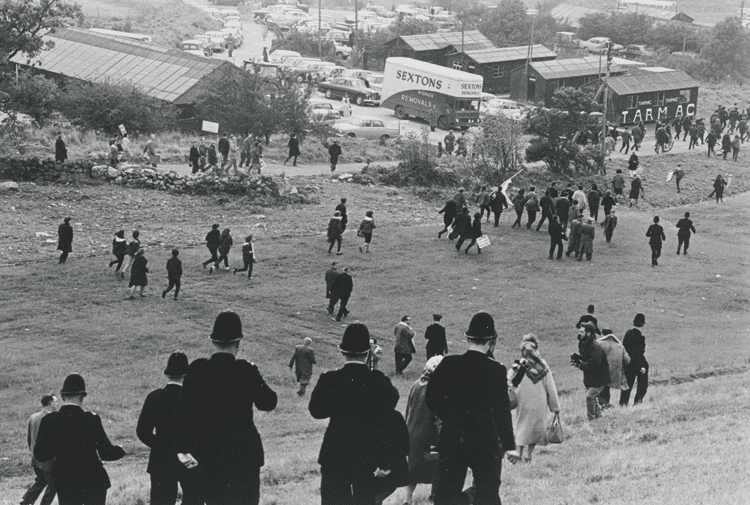
The day of the inauguration of the Capel Celyn dam. Archive of the National Library of Wales, Geoff Charles collection
HM Prison Wormwood Scrubs
9 December 1971
Annwyl Watcyn,
Thank you for your sympathy regarding my impending divorce. I am reconciled to it by virtue of its inevitability. I am not really bitter about it, because my feelings regarding myself were drained some time ago; anything more is like pouring water on a saturated sponge. After the humiliation of Tryweryn [Capel Celyn], the agony of Aberfan, the crucifixion of Caernarfon and the attitude of the Blaid [English] to our Welsh dead and imprisoned, I have nothing more to feel with…
The other query referred to my being captured. I know the police made a big thing of it, saying the brilliant work of the Special Branch and the plodding of the CID together were responsible. In fact, I was betrayed, informed on by a woman from the North… a friend not of mine but of an acquaintance. What has emerged is that MAC cost the state £7,000,000, and lost 2 men dead and 2 in prison. My greatest achievement was not the cost of the State, or that they lost so much and saw only two cells destroyed (one by accident, one by betrayal) but that without the informer they would never have broken our cover.
I must apologise for getting all technical and revolutionary – it means that this letter will have to filter through an extra few layers before reaching you eventually.
Er mwyn Cymru,
John (MAC)
Learning to make the bombs was the easy part. A colleague who had picked up the skill from an Irish republican ‚Äúacross the water‚Äù taught Jenkins the basics. Easier still was getting hold of the parts needed to build them. ‚ÄúYou can buy a clock in any shop,‚Äù he says. ‚ÄúAll the stuff we used was available in any Woolworths.‚Äù He pauses. ‚ÄúExcept the explosives.‚Äù But Jenkins had devised a plan for that too. He had cultivated a network of sympathisers in every part of Wales. He refuses to say how many but claims they were¬Ý in almost every Welsh institution, including the police.
To complete his supplies, he set his sights on a nearby coal mine. “They had an explosives store,” Jenkins says. “And one of my men was working in the colliery. So I was able to break in.” The problem was how to avoid setting off the alarm back at the colliery’s headquarters. But Jenkins had made arrangements to take care of that. “Our man managed to put in a small piece of rubber material that stopped the bell going off! So we were able to get in and get our stuff, half a ton of it.” Jenkins took the haul and hid it in the place the authorities were least likely to look: the dental surgery at the British military barracks he worked in. “I was in sole charge. And there it stayed for three years. Most of it we were able to use.”
Jenkins was able to build dozens of bombs for local missions. A newly built nightclub, owned by a recently arrived rich Englishman, was blown up. Several tax offices and pipelines went too. “The papers kept burbling on that the public was outraged by the latest activity,” says Jenkins. “Well, I’ve never met anyone who was outraged by the bombing of a tax office.” What set MAC apart from the proliferation of other small, localised terrorist groups in Europe was its success. No one was being arrested. The police had no leads. No one knew who they were. The organisation was impenetrable largely because of the cell structure that Jenkins had imposed after taking control of the group in 1966.
Alwyn Jones and George Taylor, who were instructed to blow up the DSS office in Abergele the night before Prince Charles‚Äôs investiture. They placed the bomb but something went wrong”
Jenkins can’t remember when he decided to bomb the investiture of the soon-to-be Prince of Wales. But it was his most complex and dangerous operation yet. He had no intention of killing Charles, merely of disrupting the ceremony. “Nobody was going to be put at risk,” he says. “We never wanted to kill anybody. That would have been anti what we wanted to do. This was a hearts and minds thing. You don’t win hearts and minds by killing people. We wanted to destroy the nature of the [investiture], make it an armed camp. So that everywhere you turned there were police troops.”
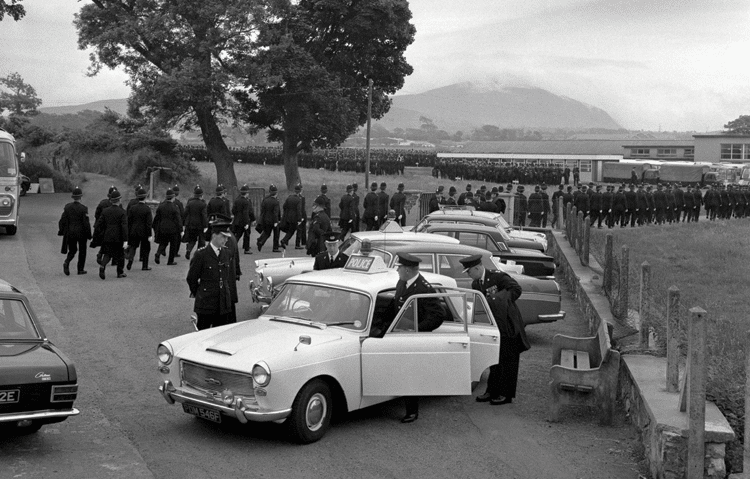
Long lines of police march on to a local football field for a pre-investiture briefing in Caernarfon, 1st July 1969. Photo: PA/PA Archive/Press Association Images
The group, led by Jenkins, planned four missions around the investiture: one cell would blow up a tax office in Abergele, a town through which the royal train would pass. Two more bombs would go off in Caernarfon itself, timed so that the planned 21-gun salute would turn into a 22-gun salute. The fourth would destroy the Llandudno pier where the royal yacht Britannia was due to dock.
The operations – not to mention having to go into work every day in a British army uniform – started to take their toll on Jenkins. “It was terrifying,” he says. “I think I can bear a fair amount of stress, but each month things became tighter and tighter. And in the end we were doing things in a not particularly security-conscious way. We were so hard pressed.” Jenkins built the four bombs and delivered them. One of them was handed to Alwyn Jones and George Taylor, who were instructed to blow up the DSS office in Abergele the night before Prince Charles’s investiture. They placed the bomb but something went wrong. It exploded, killing them both. The family of George Taylor has since claimed he was not a member of MAC and was never involved in extremist politics.
Jenkins heard the news on the morning of the investiture. He was on duty with the dental corps, a few hundred metres from the prince himself. “I was in my tent at the camp outside Caernarfon,” he says. “The tent flap opened and this captain popped his head in and said: ‘We got two of the bastards last night!’ Then he left. There were four groups out the night before. But I couldn’t ask [who had been killed] because that would be suspicious. I was distraught, but the trick was that I had to appear delighted. I don’t know what went wrong. The bomb was delivered to Alwyn and George a week before. The target was not the royal train as the press said, it was a government building in the town.”
Jenkins watched as his plans began to unravel. Two other bombs failed to go off, including the device at the pier. The other exploded only after a young boy mistook it for a football and kicked it, injuring his leg. The final bomb went off as planned and on time. Jenkins had given his 22-gun salute.
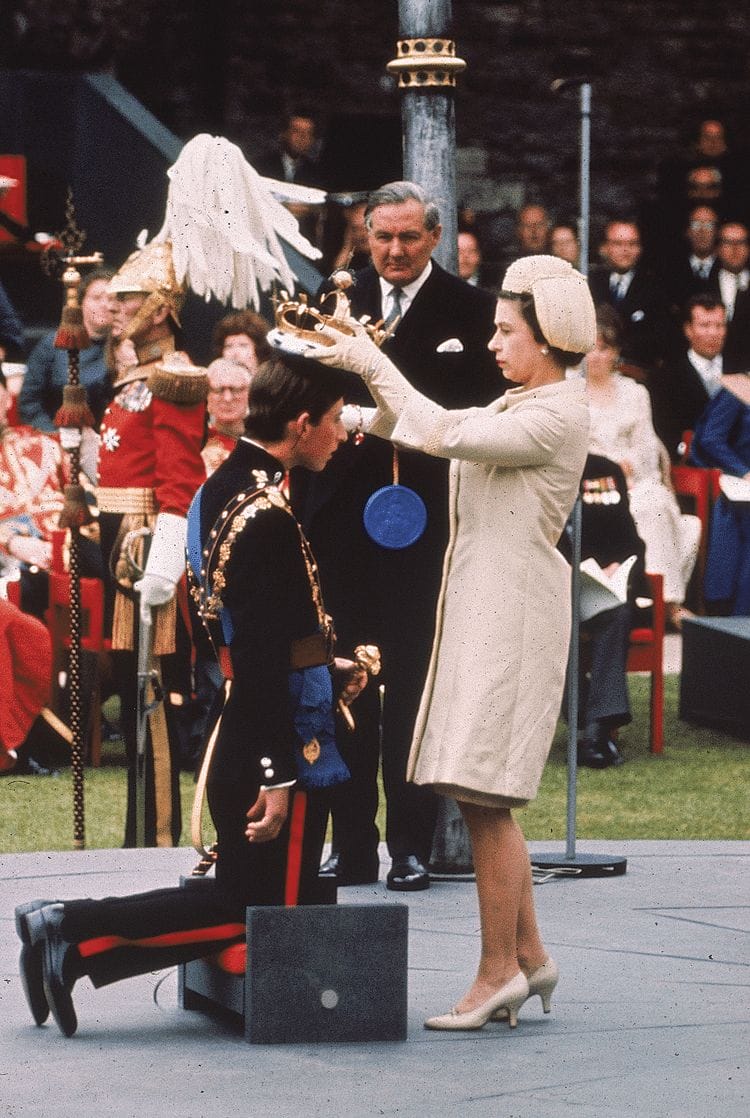
The investiture ceremony at¬ÝCaernarfon castle, 1st July 1969. Photo: PA/PA Archive/Press Association Images
MAC’s aims had been met. They had disrupted the ceremony and turned Caernarfon into a military camp. But three of the bombs had failed to detonate, and Special Branch’s net was starting to tighten. Jenkins continued building bombs and began going on missions himself. One sortie to a tax office in Chester had to be abandoned when his sidekick deliberately broke the timer when he lost his nerve.
Although he didn’t know it, Jenkins’s fate had been sealed two years earlier. “I was betrayed,” he says of his capture. “By a woman.” On St David’s Day, Jenkins was celebrating by going on a pub crawl. He was between pubs when he ran into an operative. “He had a girlfriend with him. When his car came around the corner his headlights shone on me, it showed me in full regalia of the Royal Welch Fusiliers, bloody great big hat. The lot.” When word got out about the deaths at Abergele, the girl went to the police and said what she had seen. The police managed to deduce who Jenkins was. “It turned out there were only four people in the whole of Wales at the time wearing that uniform…”
On 2nd November 1969, Jenkins answered a knock at the door. It was the police, requesting his aid. They needed a military man to escort them to the local army cadet station as some money had been stolen. Not suspecting a thing, he agreed to help and walked out of his office. It would be the last time John Barnard Jenkins would be free for almost a decade.
HM Prison Albany
22 September 1972
Annwyl Cyril
I write this, Cyril, on the 23rd day of my hunger strike and I feel that I owe it to you to explain that I am not in fact ‚ÄúTamely submitting to intolerable pressures,‚Äù but making a stand [CENSORED] Therefore the position has been reached where the decision of the Judiciary has been set aside by the Home Office on a technicality [CENSORED] ‚Ķ¬Ý conflicts with the Strasbourg convention to which this state is a signatory. I am prepared to bear impossibly heavy burdens, Cyril, but I am unable to [CENSORED] then for the pure sake of justice and indeed self-protection, I must seek political status for the benefits. I am not a hardened and toughened criminal, or a political prisoner; at present I receive the disadvantages of both classes and the benefits of neither‚Ķ
Er mwyn Cymru
John
In his summing up at Flintshire Assizes, Mr Justice Thompson labelled him a ‘clever, ruthless fanatic’, something Jenkins has worn as a badge of honour since”
The judge was damning in his assessment of Jenkins. In his summing up, Mr Justice Thompson labelled him a “clever, ruthless fanatic”, something Jenkins has worn as a badge of honour since. He was sentenced at Flintshire Assizes to a number of ten-year sentences. But they were to be served concurrently. Jenkins spent time in Birmingham and Wormwood Scrubs before being “ghosted” – moved suddenly and under cover – to Albany on the Isle of Wight, where he spent most of his time as a Category A prisoner.
Prison life was brutal. It was, in Jenkins‚Äôs words, ‚Äúthe state with the gloves off‚Äù. He came into contact with other Category A prisoners, including members of other paramilitary¬Ýorganisations. ‚ÄúI did meet IRA people. I was one of the boys. Some of the things we did they actually copied, like the cell system for instance. They were fed up with everyone being arrested all the time. But with us no one was arrested,‚Äù he says. ‚ÄúThey used to call me ‚ÄòThe General‚Äô!‚Äù
He was also of interest to various security agencies who wanted to know how he had got away with his activities for so long. ‚ÄúWhen I was on remand in Shrewsbury Prison there was a meeting. I walked in and there were 20 men in dark suits and dark ties with close-cropped hair. They started questioning me. The main thrust was: ‚ÄòWhat was the organisation behind this one?‚Äô They couldn‚Äôt believe our strategy was home-grown. We were obviously being advised¬Ýby a military genius in Russia. ‚ÄòOh, you were in Berlin, were you in touch with the Angry Brigade?‚Äô No. They were puzzled. What they couldn‚Äôt understand was what we had been fighting against all along. They couldn‚Äôt believe that an autonomous Welsh body was formed in Wales by Welsh people.‚Äù
John Barnard Jenkins was released on 15th June 1976 after serving seven years of his sentence. He was 43 years old. Under constant surveillance by Special Branch after his release, Jenkins withdrew from politics, even while the rest of MAC returned to the fray. It is believed that Meibion Glyndwr, the Sons of Glyndwr, a group that burned more than 200 English holiday homes in Wales in the 1980s, were direct descendants of MAC. No other member of the organisation was ever caught.
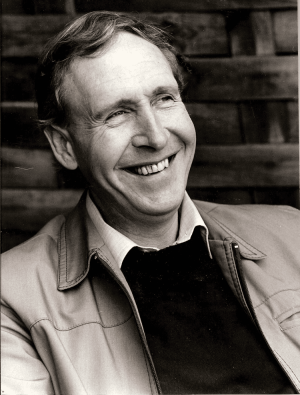 Today Britain is a different place. Wales has an assembly and devolved powers. Plaid Cymru is a mainstream party. The SNP in Scotland will have a referendum on independence in 2014. Does Jenkins believe he has helped in a small way to contribute to the splintering of the UK? “There’s two things,” he says. “I curse the day I was born a Welshman. I curse it. Because the second thing is my sense of duty. If I’d had one without the other I had been all right but I have both and there’s certain things I have to do so I do them. If I was the average Englishman all I would be worried about is where the next pint is coming from, who I’m going to wake up in bed with tomorrow morning, what kind of hair does Beckham have. If that was all I had to worry about, what a wonderful bloody world it would be as far as I’m concerned. But I have other things to think about, other fish to fry.”
Today Britain is a different place. Wales has an assembly and devolved powers. Plaid Cymru is a mainstream party. The SNP in Scotland will have a referendum on independence in 2014. Does Jenkins believe he has helped in a small way to contribute to the splintering of the UK? “There’s two things,” he says. “I curse the day I was born a Welshman. I curse it. Because the second thing is my sense of duty. If I’d had one without the other I had been all right but I have both and there’s certain things I have to do so I do them. If I was the average Englishman all I would be worried about is where the next pint is coming from, who I’m going to wake up in bed with tomorrow morning, what kind of hair does Beckham have. If that was all I had to worry about, what a wonderful bloody world it would be as far as I’m concerned. But I have other things to think about, other fish to fry.”
He repeats what he said when I first met him. He doesn’t recognise Wales any more. There’s more Welsh spoken, but less of a sense of community. More English people than ever are moving in. “I don’t think I will ever see the Wales I want to see in my lifetime,” Jenkins says, before getting up to leave. His parking ticket is about to run out, and the local traffic wardens can be very nasty, he says.
Before he goes I ask him a final question. Does he believe that the United Kingdom is doomed to break up? For the first time in more than two hours he isn’t sure how to answer. Maybe, if the UK dissolves, they’ll build a statue of you in Caernarfon, I add. He splutters back to life. “Don’t, for God’s sake! That’s for people who are politically acceptable. I won’t ever be politically acceptable. I hope. Good God. They’ll be offering me the OBE next.” With that the General, his Wales hat pulled tightly over his ears, walks past the group of English drinkers and out into a country that has all but forgotten him.
Slow Journalism in your inbox, plus infographics, offers and more: sign up for the free DG newsletter. Sign me up
Thanks for signing up.
